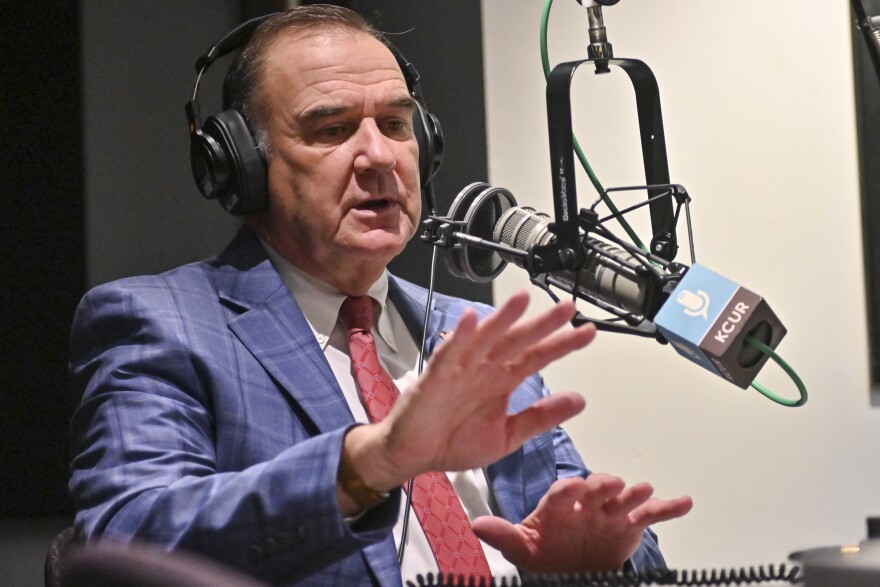One of Missouri Gov. Mike Kehoe’s campaign promises was to eliminate the state income tax. He expects lawmakers to start laying the groundwork in the upcoming legislative session.
Eliminating the tax would help grow the economy and put more money back in residents' pockets, Kehoe told KCUR’s Up To Date.
“This won't be a light switch,” said the governor, a Republican. “It doesn't just happen from one day to the next. It'll take a period of years. I'm hoping, over a four- or five-, maybe even a six-year ramp period, that we'll get to the point where we can get to zero and Missourians can keep more money in their pocket.”
More than half of Missouri’s general revenue comes from state income tax.
Missouri is projected to have a $1 billion shortfall in fiscal year 2027. Kehoe attributes the deficit to the end of COVID-era programs and funding.
“If you look at it from kind of a capitalist standpoint, as the economy gets better, revenues will continue to come in for the state, other taxes, other revenues that we collect, and fees, so if we can get our economy better, maybe that helps make up the shortfall,” he said.
On the campaign trail in 2024, Kehoe worked with economist Dr. Art Laffer, an adviser to former Kansas Gov. Sam Brownback.
The governor also remains active in Kansas City’s busy sports scene as the Royals and Chiefs weigh stadium options, and the bi-state region is less than a year away from the World Cup.
Comments by the governor about a potential dome over Arrowhead Stadium stirred excitement among some sports fans, but the governor said the comments were taken out of context.
“It was just a casual comment that I've seen a fabric dome before,” Kehoe said.
A major soccer fan with family ties to the sport, the governor expressed excitement for the upcoming World Cup games in Kansas City.
Six World Cup matches will be played in Kansas City, including a quarter-final match. The region has three base camp locations up for consideration. The games are expected to generate more than $650 million for the region.
“I think this is our chance to really showcase not only who we are, what great people we have, what great work ethic we have, why we're a great center for supply, logistics, transportation, etc, but also economically, what we can do for a company that might want to bring a distribution or headquarter system to the U.S.,” Kehoe said.







